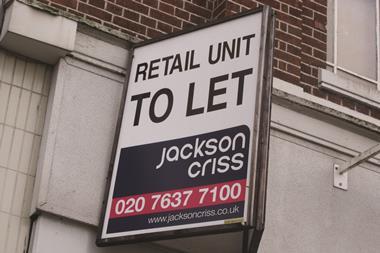Tax avoidance is big news. The time line is a long one - from Harry Redknapp’s dog to HSBC - and shows no sign of stopping.

Regardless of who wins the election, we can be assured of more of the same.
It is curious that a traditional target of political vilification, the property industry, has escaped scrutiny. Until now, that is.
Last December, the chancellor turned the spotlight on the business rates system. The Business Rate Avoidance Discussion Paper the government published had an interesting subtext.
‘Discussion paper’ turned out to be a misnomer. It was a thinly veiled call to arms for local authorities to get a grip on those trying to deprive the government of income from empty property rates. Included was a list of common avoidance techniques, with an implied request for government to be made aware of any they had missed. Even more alarming was a proposal for giving local authorities the powers to make judgement calls on the legality of avoidance measures. Isn’t that the job of the courts?
All of this entirely misses the point. Government is hooked on the income from empty rates and can’t bear to see £988m (2013/14) being given away in reliefs and exemptions. Why else has the Valuation Office Agency so firmly resisted the deletion of buildings undergoing refurbishment from the Rating List? No matter that they can’t be occupied.
The truth is that empty property rates are a bad tax and no amount of obfuscation about avoidance can hide that. The justification that it would bring vacant buildings back into use, thereby lowering rents, was flawed from the outset - and rendered defunct by the recession. Taxing empty properties at 100% of the occupied rate has led to changes in behaviour, but none of them were intended and many are undesirable.
If the forthcoming review of the rating system survives the election, reforming empty property rates needs to be at the top of the next government’s agenda. Those of a more cynical disposition will have noted the chancellor’s recent proclamation that the review will be fiscally neutral. In other words, there’s no money on offer. Some chance of reform.
Mark Higgin is partner and head of rating at Montagu Evan
































No comments yet